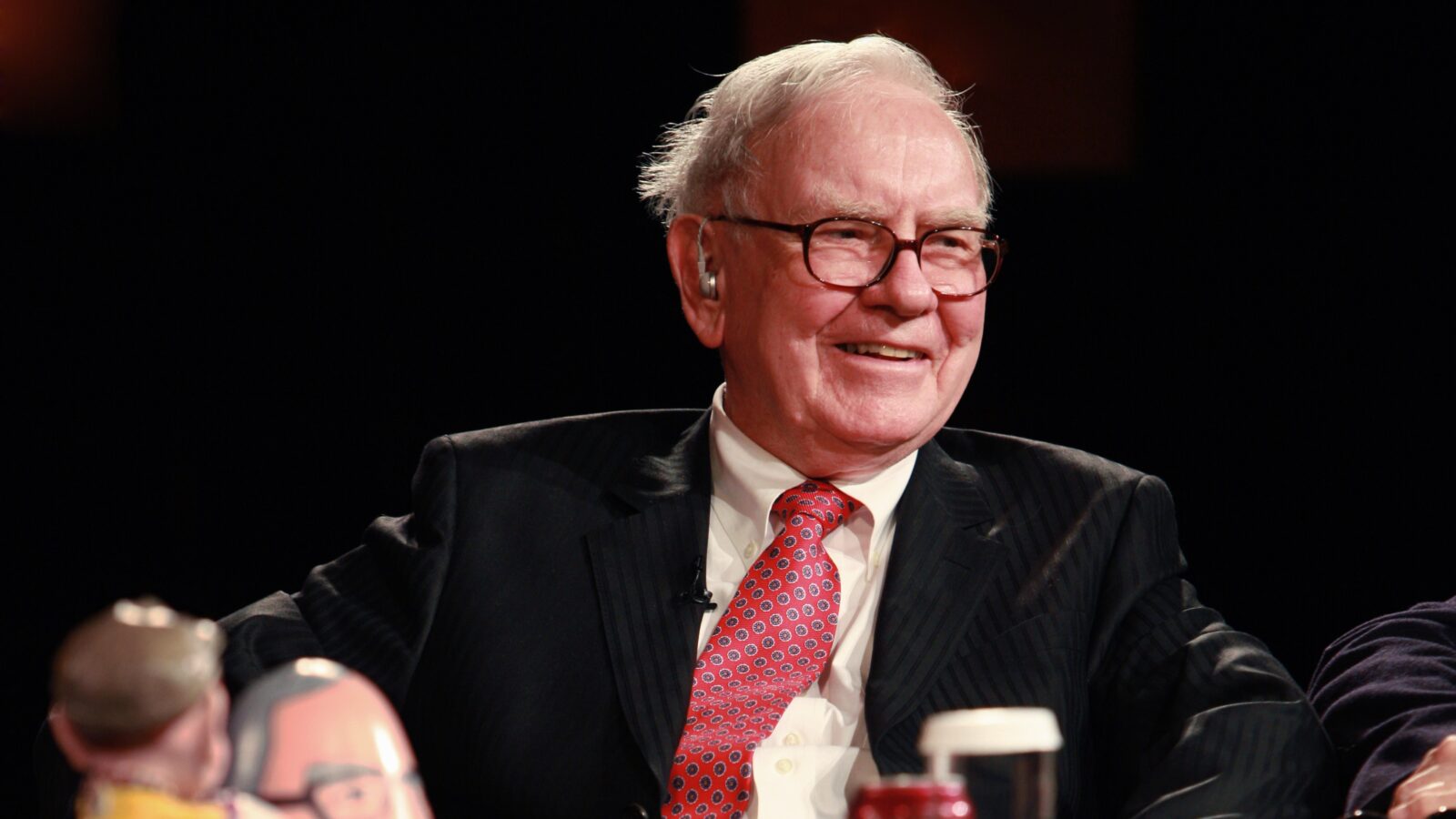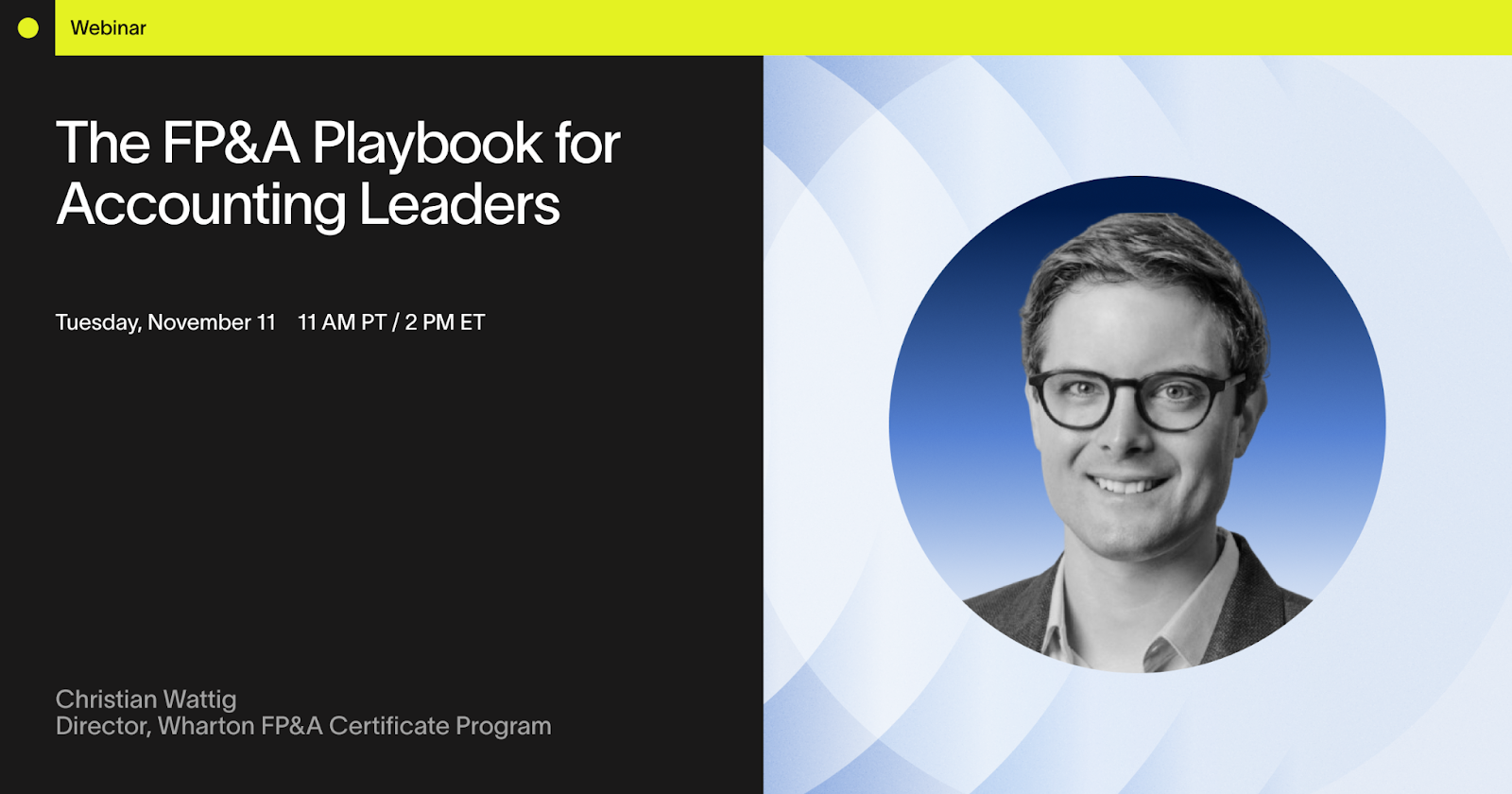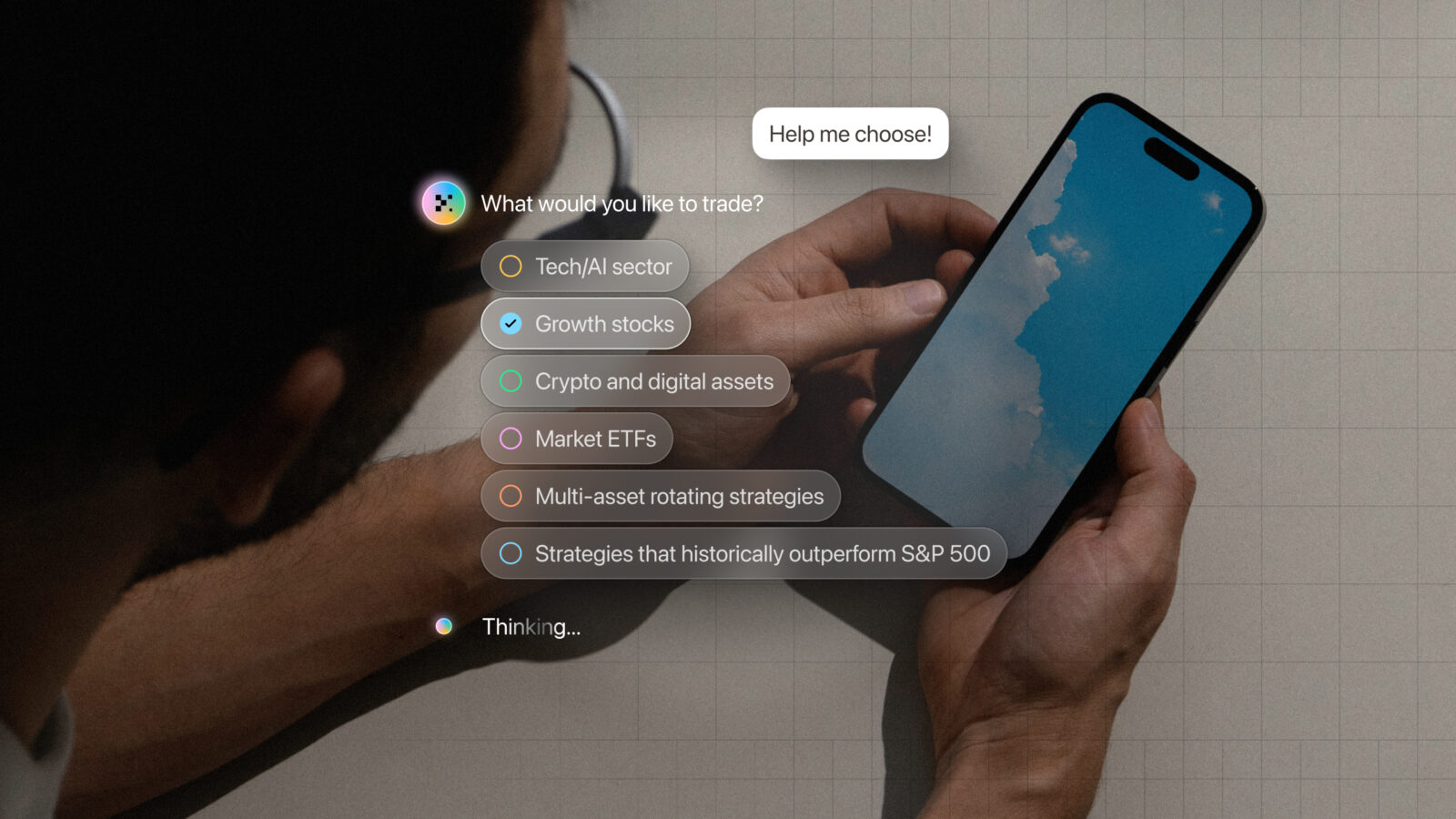Good morning.
New York City, which is home to around 380,000 millionaires, 800-plus centi-millionaires, and more than five dozen billionaires, appears poised to elect a mayor who campaigned on raising taxes for that well-heeled demographic. At least, that’s what pre-election surveys indicate. Gotham voters can find their poll location on the New York City Board of Elections website, where they’ll be able to choose between independent Andrew Cuomo, Democrat Zohran Mamdani and Republican Curtis Sliwa.
Everyone else can look forward to not receiving nonstop news alerts about a New York City mayoral election for another four years.
Unease About Warren Buffett’s Retirement Overshadows Berkshire Earnings Beat

Wall Street’s favorite struggling-textile-company-turned-trillion-dollar-conglomerate beat expectations when it reported its third-quarter earnings over the weekend.
Warren Buffett’s Berkshire Hathaway boasted a 33% year-over-year increase in operating profit, which reached $13.5 billion, and a 17% jump in net income, which combines those earnings with its investment gains and totaled $30.8 billion. When markets regrouped on Monday, however, investors offered a collective meh, as Berkshire’s Class B shares fell 0.3% in New York.
Ready, Willing and Abel
As one of the stock market’s biggest investors (the top shareholder in American Express and Coca-Cola), Berkshire’s results are something of a quarterly Groundhog Day for Wall Street, where Buffett plays the role of a much, much wiser Punxsutawney Phil. And his pending retirement adds to the fascination. For months, the CEO has variously said or implied that equities are overvalued, and Berkshire’s latest results suggest his view hasn’t changed. For the 12th consecutive quarter, Berkshire was a net seller of stocks, offloading $6 billion worth. Buffett also held off on buybacks for a fifth straight quarter.
There is undeniable unease in some quarters about Buffett’s plans to step down as CEO at the end of the year. He’ll remain as chair, and his chosen successor, Berkshire’s non-insurance operations chief Greg Abel, will captain the ship. Berkshire’s shares are down roughly 12% since the transition was announced in May, trailing the S&P 500’s roughly 20% gain and underscoring the value of the so-called “Buffett premium,” the amount that Berkshire shares are purportedly buoyed by investors’ faith in the man nicknamed the Oracle of Omaha. The upside, even if shares are flat and analysts have mixed views, is the war chest that Buffett’s leaving:
- Berkshire’s cash pile hit a record $358 billion at the end of September, with Treasury payables subtracted. It should be noted, though, that Buffett’s unprecedented cash hoarding was easier to pull off in recent years when interest rates, now trending downward, were high: Berkshire made $17 billion from interest, dividends and other investment income in the first nine months of 2025, compared with $7.5 billion in all of 2021.
- Still, Abel will enter the job with nearly $400 billion in dry powder. If Buffett’s views on valuations are vindicated and stocks do at some point tumble, the departing CEO would shore up his own legacy and help establish his successor’s place by allowing Abel to deploy Berkshire’s cash pile when prices become more attractive.
Choose Your Own Adventure: Ahead of the weekend, KBW analysts downgraded Berkshire shares, which they said appear “vulnerable” amid the leadership change. CFRA analysts were more lukewarm, stating the lack of buybacks “suggests management sees the shares as fairly valued.” Edward Jones analysts were a pinch more optimistic, writing Abel should “restore investor confidence over time.” UBS, meanwhile, hiked its target price for Berkshire to $595 from $593 and affirmed its buy rating.
Why Some Accountants Never Make It To The C-Suite

You have a gift for numbers and the talent of seeing how balance-sheet details sharpen the big picture. But when the brass starts making calls, you’re not even in the room.
That’s a problem you can fix with just a little help from Ramp. The difference between accountants who get stuck and those who rise? It’s down to learning how to position your insights so top execs rely on you.
This webinar shows you exactly how to:
- Build forecasts that shape strategy.
- Turn data into recommendations nobody can afford to ignore.
- Become the person they call before making major moves.
Join Christian Wattig of The Wharton School on November 11 at 2 PM ET for a one-hour session that confers one CPE credit.
Kimberly-Clark Takeover Offers $48 Billion of Pain Relief to Tylenol-Maker Kenvue
At least Kimberly-Clark will have unlimited access to free Tylenol.
The toiletries giant announced an agreement Monday to acquire Kenvue for $48.7 billion in stock and cash. It’s a big bet on the Tylenol-maker, whose shares had plummeted some 30% in the days since a bombshell White House allegation in September linking use of the popular pain reliever by pregnant women to autism.
Do You Need a Band-Aid?
On its surface, the deal makes plenty of sense. While Johnson & Johnson didn’t see much reason to stay in the low-growth consumer health space, spinning off Kenvue in 2023, Kimberly-Clark is pitching its shareholders on the idea that the acquisition is a chance to level up. The consumer goods titan already owns brands such as Kleenex, Cottonelle and Huggies. Kenvue’s brands, which also include Band-Aid and Listerine mouthwash, would give it dominion over the rest of everyone’s medicine cabinet.
Over at Kenvue, activists have been agitating for a deal, too. Sources told Bloomberg on Monday that Third Point, D.E. Shaw, Starboard Value, and TOMS Capital Investment Management were all pushing for a sale due to the lackluster results preceding the political firestorm. For its part, Kimberly-Clark says a merger would be more than just a corporate bandage, and it could create a health and wellness giant:
- The unified company would have a total annual revenue of $32 billion, placing it roughly on par with the health and wellness businesses of fellow consumer conglomerates Unilever and Procter & Gamble.
- Kimberly-Clark executives also said Monday that the combined company could find some $1.9 billion in cost savings, $1.4 billion in incremental revenue within four years of the deal closing, and “approximately $500 million in incremental profit from revenue synergies.”
Watch It, Partner: The deal, expected to close in the second half of 2026, comes as Tylenol’s political fight is heating up. Just last week, the state of Texas sued Kenvue and Johnson & Johnson, claiming they hid the risk that use of the medication by pregnant women might lead to autism in children. (Scientifically speaking, the data so far is mixed, and most experts say more research is necessary to confirm actual causation.) Shares of Kimberly-Clark closed down almost 15% on Monday. Shares of Kenvue, on the other hand, closed up 12%. We’ll call that pain relief.

Wish ChatGPT Could Actually Trade For You? Composer is AI purpose-built for trading. Describe your trading strategy ideas in plain English, and Composer will build, backtest and execute them at your command — no coding, no spreadsheets, no costly overhead. Use code UPSIDE for 88% off. Trade with AI.
OpenAI Teams Up With Amazon for Even More Computing Power
Sam Altman is still sore about the $45,000 he spent on a Tesla Roadster but never received, a grievance he aired during his never-ending feud with Elon Musk on X. But that hasn’t kept Altman from spending big at his company OpenAI, which is causally tossing around astronomically larger sums, like the $38 billion it agreed to pay Amazon yesterday for additional cloud infrastructure.
The new agreement lets OpenAI immediately start tapping the computing power of Amazon Web Services and its hundreds of thousands of advanced Nvidia chips. Amazon is expected to expand its infrastructure to meet the needs of 800 million weekly ChatGPT users asking the chatbot to complete important tasks, like creating recipes based on pics of their nearly empty fridges.
Going Up, Up, Up
OpenAI’s $38 billion deal with Amazon is small potatoes compared to some of its other agreements. Altogether, its tie-ups with companies including Broadcom, Oracle and Google tally up to about $1.4 trillion. OpenAI is reportedly buying $300 billion worth of computing power from Oracle over five years, and last week, the ChatGPT-maker said it’ll scoop up $250 billion worth of Microsoft’s Azure cloud infrastructure.
The last 18 months have signaled a major shift in how OpenAI makes and spends its money:
- Until 2023, OpenAI only bought power to run its models from Microsoft as part of an exclusive partnership. But as ChatGPT became everyone’s favorite therapist, OpenAI said it needed more power and Microsoft gave the go-ahead for deals with select other companies.
- Then last week, OpenAI restructured from a “nonprofit” to a “for-profit benefit company” and renegotiated its deal with Microsoft. Now, OpenAI doesn’t need Microsoft’s approval to work with other cloud providers. Hence, its $38 billion deal with Amazon.
Hot Seat: Circling back to the Altman-Musk beef, Musk on Saturday replied to Altman, “You stole a nonprofit.” Musk sued OpenAI and its founders last spring, alleging they had betrayed the company’s original nonprofit mission. Other critics are simply concerned that the newly for-profit OpenAI could have a hard time making a profit as it continues to burn billions. But Altman said yesterday that OpenAI was making “well more than” the $13 billion annual estimate the Financial Times reported earlier this month and shut down revenue questions with a firm “enough.”
Extra Upside
- Trans-Pacific Slowdown: US manufacturing contracted for the eighth month in a row in October, according to the Institute for Supply Management’s latest Purchasing Managers Index survey. So did activity at China’s factories.
- Check Back in Five Years: Goldman Sachs CEO David Solomon said he isn’t terribly worried about artificial intelligence wiping out white collar jobs.
- 7 Ways to Achieve a Comfortable Retirement. Retirement planning shouldn’t be complicated. The Definitive Guide to Retirement Income can help you feel confident about your financial future. Explore seven income streams to help keep a $1,000,000 portfolio growing for years to come.*
* Partner

